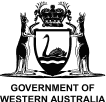Westport has partnered with the Western Australian Marine Science Institution (WAMSI) to deliver the $13.5 million WAMSI-Westport Marine Science Program. This 3-year program is developing the latest data, information and modelling on the complex environmental systems and community values associated with Cockburn Sound.
Project 2.2: Enhanced resilience to prolonged marine heatwaves in Posidonia sinuosa seagrass populations from warmer regions.
Research theme: Benthic Habitats and Communities
Researchers: Wesselmann, N. Said, C. Webster, S. Strydom, K. McMahon
Investigating ways to improve the resilience of seagrass to increasing marine heatwaves.
Climate change is having a significant impact on seagrass worldwide, with rising marine heatwaves posing a growing threat to their health.
Posidonia sinuosa (P. sinuosa) is one the most abundant seagrass varieties in Cockburn Sound and the waters surrounding metropolitan Perth.
To understand how we can preserve and support seagrass communities, we need to understand how they respond to extreme thermal events caused by climate change.
This study evaluated the impact of prolonged marine heatwave conditions (30°C) on the photophysiology, metabolism, and growth of three different populations of P. sinuosa, one each from Shoalwater, Garden Island, and Jurien Bay.
The aim was to determine whether populations with higher thermal optima – those seagrasses with a higher rate of photosynthesis - were more resilient to heatwaves than seagrass with a lower thermal optima.
Seagrass plants from all three locations were subjected to a simulated 4-week marine heatwave at 30°C degrees to assess the impact response, followed by observation of the recovery phase at a temperature of 24°C degrees for two weeks.
What the report found
- All three P. sinuosa populations were negatively impacted by the simulated marine heatwave of 30°C for four weeks, suggesting a long-term negative impact for P. sinuosa from marine heatwaves.
- However, there was a difference between populations in the response and recovery, highlighting that some populations are more resilient to these extreme events
- Seagrass populations in Shoalwater, characterised by lower photosynthetic rates, were more adversely affected than those from the warmer waters of Jurien Bay.
What the report recommended
The report recommended that seagrass management strategies should consider population-specific responses to thermal stress. For instance, selective translocation or assisted gene flow from more resilient populations (e.g. Jurien Bay) to vulnerable areas (e.g. Shoalwater) could enhance the resilience of seagrass meadows to future warming events.
How Westport will use the report
Westport will use this research to inform its environmental management program, including avoiding and mitigating impacts to seagrass during the development of the port, and to support best practice for Westport’s plans to significantly scale-up seagrass restoration in Cockburn Sound.





